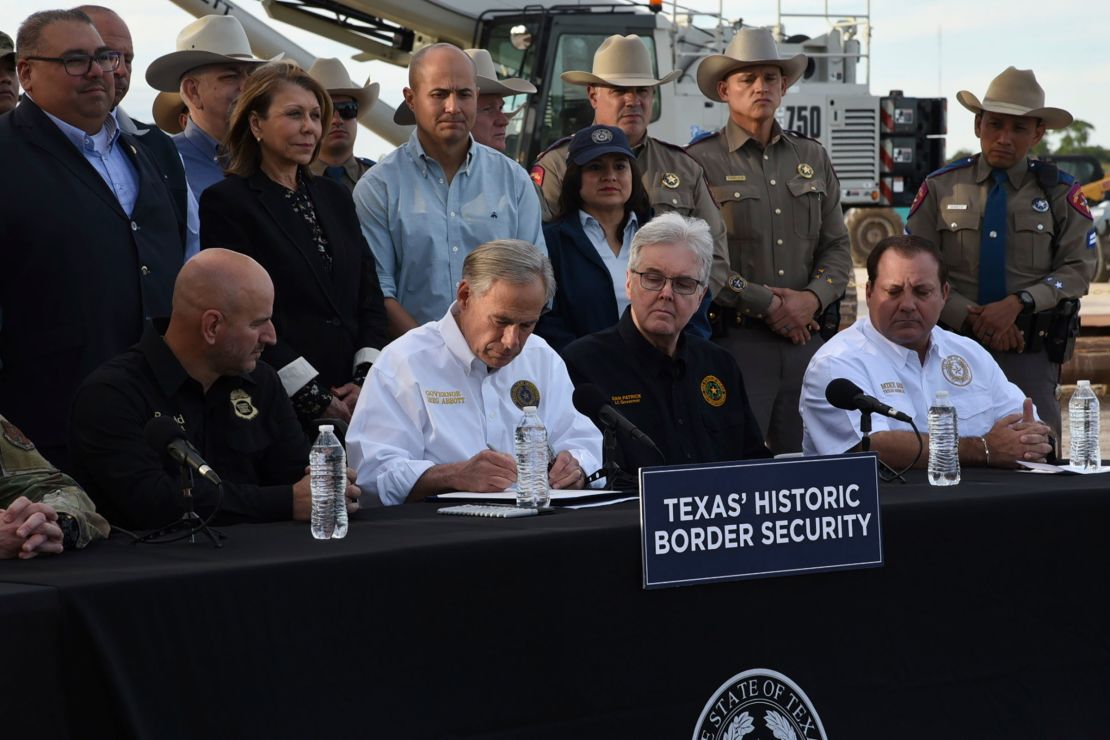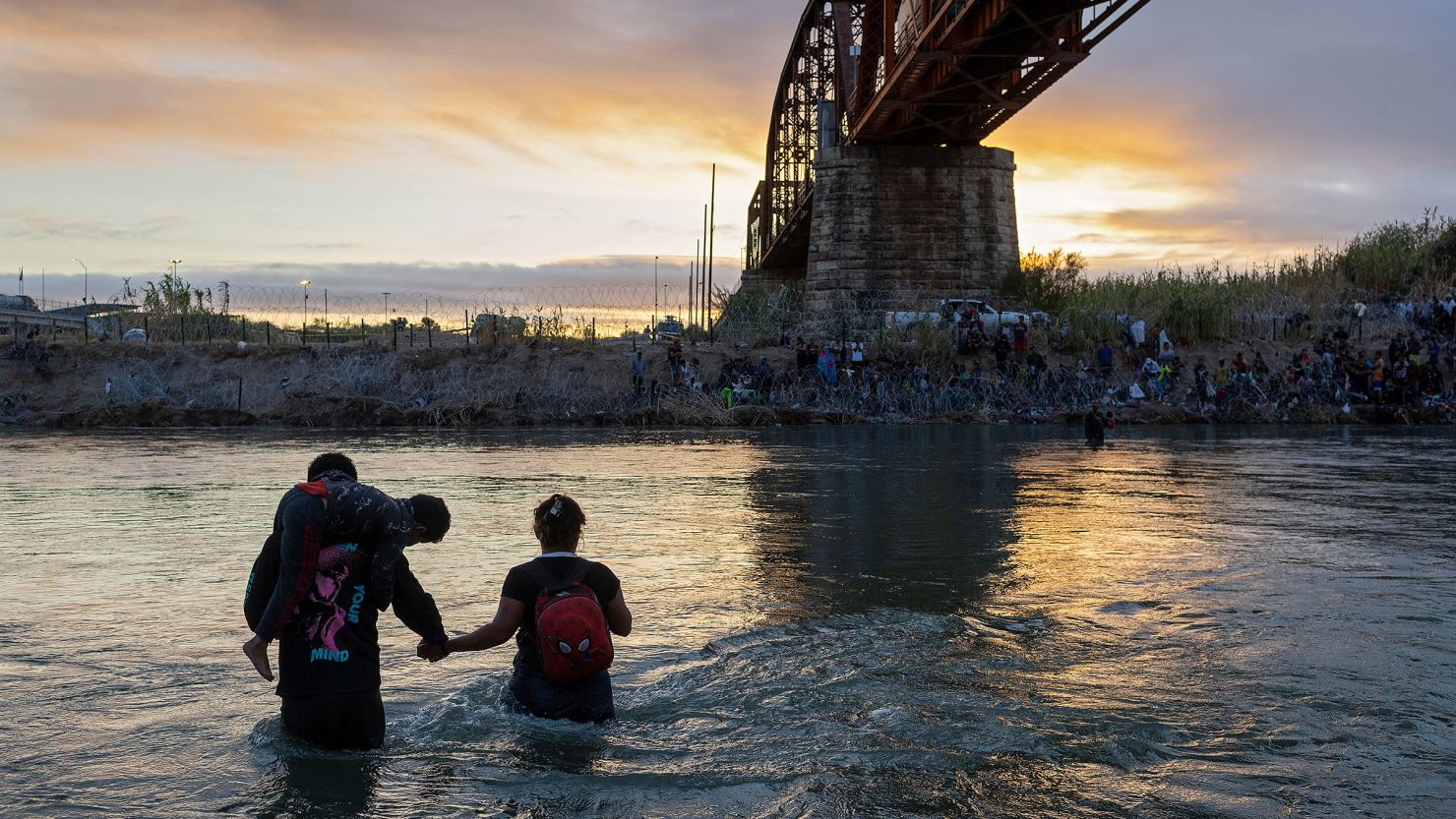Editor’s Note: Raul A. Reyes is an attorney and a member of the USA Today board of contributors. Follow him on Twitter @RaulAReyes. The opinions expressed in this commentary are his own. View more opinion on CNN.
On Tuesday, the ACLU filed a lawsuit in response to Texas Gov. Greg Abbott’s signing of a bill that he says will enable his state to fight illegal immigration. Under SB 4, migrants who enter Texas without authorization will be committing a state crime. Local law enforcement officers in the Lone Star State will have the power to arrest them, and state judges will be able to order them removed to Mexico. The law is scheduled to take effect in March. Abbott said at a Monday news conference that he was taking this action on immigration because “President Biden’s deliberate inaction has left Texas to fend for itself.”

In escalating the battle over immigration between Texas and the Biden administration, Abbott is playing a dangerous, cynical game. His new law is constitutionally suspect and logistically impractical. It will open the door to racial profiling of Latinos while placing Texas communities at risk. And there is no sound evidence that it will lead to a significant drop in illegal immigration.
Abbott made this move against a backdrop of record levels of unauthorized entries at the southern border. In November alone, officials apprehended about 192,000 migrants between ports of entry, a border patrol chief told CNN. This ongoing influx of migrants has become a huge political liability for President Joe Biden, and a drain on resources in border states.
Yet SB 4 is legally problematic because it encroaches on federal authority over immigration. Under the Supremacy Clause of the constitution, federal laws take precedence over state measures, and existing federal law already guarantees migrants the right to apply for asylum. Texas cannot sweep such humanitarian relief away with its own law.
In addition, for over 100 years the Supreme Court has held that the power to regulate immigration lies exclusively with the federal government. In the 2012 case Arizona v. US, the high court established that states may not put in place their own immigration laws, citing “the federal government’s broad, undoubted power over immigration.” It’s no wonder that a group of 30 former immigration judges, appointed by both Republicans and Democrats, signed a November letter opposing SB 4 as unlawful.
SB 4 will allow state and local law enforcement in Texas to arrest people they suspect of being in the country illegally. However, as some Texas police chiefs have pointed out, this will pull police away from their regular duties, such as fighting violent crime. The law burdens local officers with immigration responsibilities, for which they may not have been trained.
In a state that is 40% Latino, according to the US Census Bureau, and about 17% foreign-born, according to the American immigration Council, how are state and local police supposed to decide who is undocumented – by asking for papers? Or judging people based on their skin color or language preference?
Turning all police into de facto immigration agents is bad policy because it will discourage migrants and their families from reporting crimes or coming forward as witnesses. Texas’ new law will likely sow distrust between local law enforcement and Latino communities.
That’s why three county chief executives in Texas have written to Biden, urging him to take action against SB 4; they recognize the measure as a threat to public safety. It also represents a potential financial burden on state and local jail and justice systems, as Texas localities will bear the costs of incarcerating migrants and adjudicating their cases.
Without a doubt, SB 4 is an extreme measure. Just ask Abbott. He called the legislation that he signed on Monday “so extreme” that it would keep migrants away from the state. His comment bespeaks a lack of compassion for people who are fleeing persecution and violence in their countries of origin.

For migrants, SB4 will mean more suffering, more mistreatment and an improper abridgement of their right to an asylum hearing and due process. Since the law curtails access to lawful humanitarian relief, it could drive more migrants to attempt to enter the country with smugglers and cartels, which is hardly a desirable outcome for anyone.
True, there is a crisis at our southern border. But Abbott is wrong when he says that Biden is doing nothing on immigration. Biden has ended Title 42, a Trump-era public health regulation used to turn migrants back at the border. He has granted Temporary Protected Status for Venezuelan nationals; and set up a new mobile app that asylum-seekers can use to apply for appointments. Biden is taking action on immigration – just not the kind of action that Abbott wants. Nor are our borders “open”; this year, the administration has been ramping up deportations.
Get Our Free Weekly Newsletter
- Sign up for CNN Opinion’s newsletter
- Join us on Twitter and Facebook
The president makes immigration policy, not state governors, and for good reason. Imagine if all 50 states initiated their own immigration and deportation programs. It would create havoc with US foreign policy. Already, Abbott’s actions could backfire, by sending a message to lawmakers in DC working on an immigration compromise (tied to Ukraine aid) that GOP leaders are not acting in good faith on this issue. SB 4 could throw a wrench in their plans, by conflicting with any possible immigration deal.
SB 4 is an assault on civil and human rights and a threat to public safety. It undermines federal authority on immigration. The Biden administration should join the ACLU in suing to prevent this harmful measure from going into effect.




